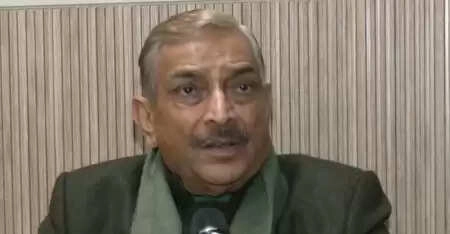In a recent statement that stirred significant controversy, Congress MP’s remarks regarding former President Donald Trump drew attention for their provocative nature. The MP jokingly claimed that Trump would create a significant disturbance or “tehelka” in the political landscape, while also referencing a Nobel body with the quip “Machado.” This comment was met with mixed reactions, as some found it amusing, while others labeled it as a “poor joke.” The juxtaposition of Trump and a Nobel committee in this context raises questions about the appropriateness of humor in serious political discourse.
The MP’s attempt at humor seems to reflect a broader trend in politics where figures attempt to leverage satire and wit to engage with their constituents or to critique opponents. However, this approach can backfire, especially when it risks trivializing serious matters or alienating certain segments of the audience. Critics argue that such jokes can dilute the gravity of political discussions, turning important issues into mere fodder for humor, which can overshadow genuine concerns. The reaction to this particular quip highlights the delicate balance politicians must strike between being relatable and maintaining a respectful tone when discussing influential figures like Trump.
Moreover, the reference to a Nobel body in conjunction with Trump adds another layer of complexity to the remark. The Nobel Prizes are generally associated with significant achievements in various fields, including peace, literature, and science. By invoking such a prestigious institution in a lighthearted manner, the MP may inadvertently undermine the seriousness of the Nobel accolades and their recipients. This could lead to further discussion about the role of humor in political commentary and whether it serves to enhance or detract from public understanding of complex political dynamics.
Ultimately, this incident serves as a reminder of the power of language in politics. While humor can be an effective tool for engagement, it can also lead to misunderstandings and controversies if not wielded carefully. As political conversations continue to evolve in the digital age, the responsibility lies with public figures to navigate these discussions with sensitivity, ensuring that their words foster constructive dialogue rather than divisive reactions.




